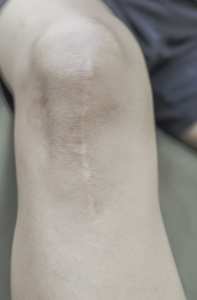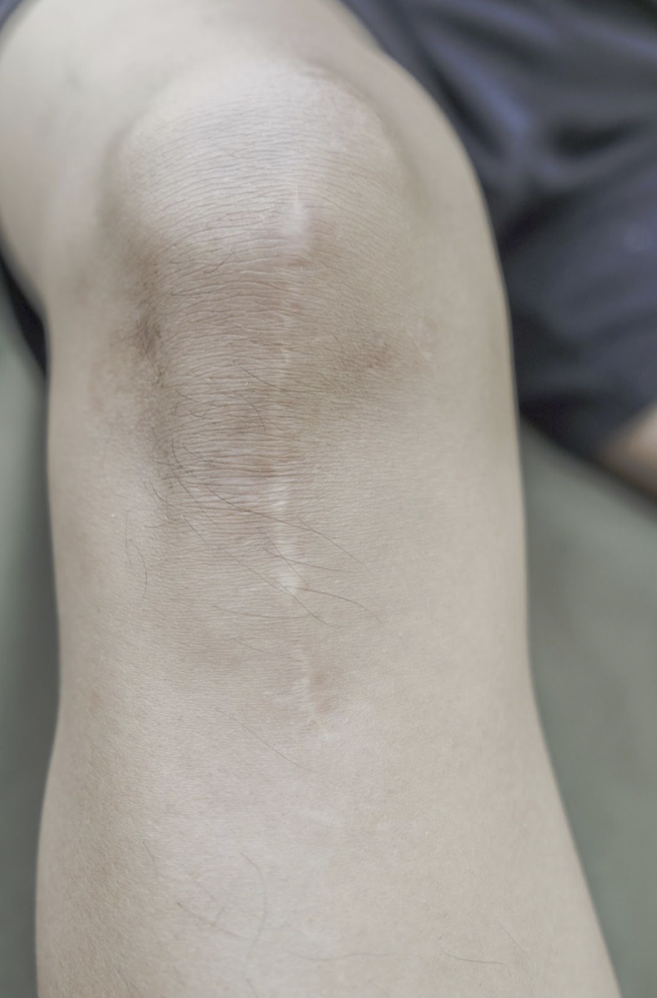While surgical procedures have come a long way over the past few decades to minimize damage to the tissue, after most surgical procedures you will have some scarring. An experienced surgeon can help reduce a scar by using proper incision techniques, but there are ways you can promote post surgical healing as well.
1. Good Incision Care
 Washing your hands before wound care with an antibacterial soap, keeping the incision clean and dry, and taking antibiotics as prescribed will help reduce the risk of infection. Inspect the incision daily for signs of infection, which include redness, drainage, pain, swelling, and the area being hot to the touch. Report any concerns to your surgeon immediately.
Washing your hands before wound care with an antibacterial soap, keeping the incision clean and dry, and taking antibiotics as prescribed will help reduce the risk of infection. Inspect the incision daily for signs of infection, which include redness, drainage, pain, swelling, and the area being hot to the touch. Report any concerns to your surgeon immediately.
2. Eat Right and Stay Hydrated
Eat a diet with proper nutrition and make sure you don’t get dehydrated which can cause a decline in your overall health. Making sure you are eating an adequate amount of protein in can assist the skin in proper healing. Your body uses protein to build and repair bodily tissues as well as prevent infection. Foods high in protein include nuts, meats, seafood, eggs, poultry, soy and dairy products. Since the body will need more protein during the wound healing process, protein supplements may also be a good alternative.
3. Avoid Sun Exposure
Exposing a scar to the sun while it is still in the first 3-6 months of the maturation process can cause the scar to become darker. This is called hyperpigmentation and is caused from the UV radiation in sunlight. Keeping the scar covered is the best option, but if not you can use a good sunscreen. Just make sure to check with your surgeon to make sure it is healed enough to apply sunscreen to the scar.
4. Quit Drinking and Smoking
Alcohol can increase dehydration so it is important to maintain your overall health during the wound healing process. Excessive alcohol use can inhibit the bodies ability to fight off bacteria and increase the risk for infection.
Smoking can slow down the natural healing process by preventing oxygen from getting to the area, raising blood sugar levels, aggravating inflammation. Many surgeons recommend that you quit smoking at least 2 weeks before surgery to lessen the side effects of smoking on the body.
5. Manage Any Chronic Illness
Chronic conditions such as diabetes, venous insufficiency, immune deficiencies and cardiopulmonary disease can slow down the healing process. Ensuring that these conditions are managed before surgery can help reduce the risk they might have on wound healing and scarring.
6. Rest
Getting an adequate amount of sleep each night can ensure that the body is able to adapt and recover. While you sleep the brain triggers a release of hormones that repair tissues and boosts your immune system, allowing better wound healing at the incision site and lessening the risk of permanent scarring.
It is also important to refrain from over exhausting yourself or doing any activity that might put tension on the incision during the healing process. If your surgeon suggests taking time off from work it is important to follow instructions to place any undue stress post surgery.

